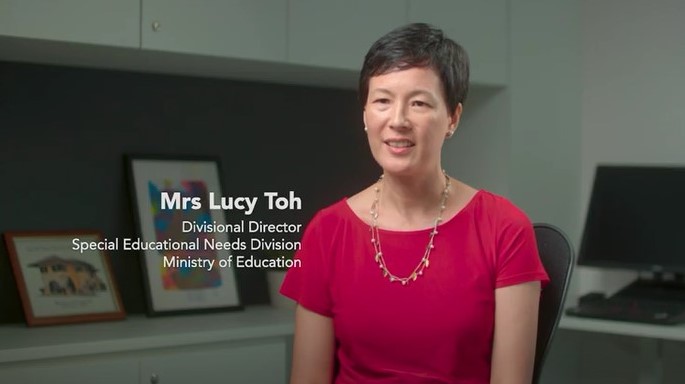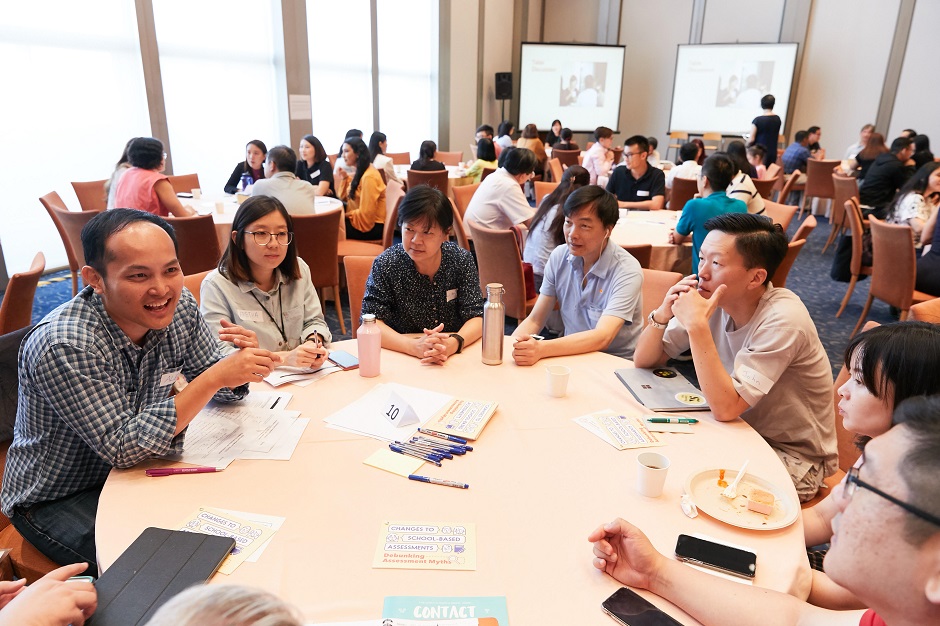You might have heard: the robots are taking over. This isn’t the plot of a science fiction movie. It’s a reality that has been unfurling around us, with factories turning to more and more automation and as driverless cars start to hit the streets in Singapore and abroad. What does this mean for your children who are currently in school, and the kinds of jobs they have to prepare for?
Marc Tucker has been working out the possibilities. The President and CEO of the National Center for Education and the Economy, a think tank based in Washington DC, has been studying the implications of global economic developments on American education for decades. We caught up with him in Singapore.
Our primary school children will start entering the workforce in 10 to 12 years. What will the job market look like then?
I see a vast elimination of relatively low-skilled routine work of all kinds. Anything that involves the same task over and over can be reduced to an algorithm, and programmed into a machine.
Much of the workforce will consist of people who are contractors, and not actually employees. At any given time they’ll be doing different kinds of work for several companies. This will happen because the business world is becoming so competitive that corporations are now hiring far fewer core staff in full-time positions. The rest are hired under contract, and only when there is work available. This is what many are referring to as the “gig economy”.
What’s driving this “vast elimination” of jobs that you foresee?
Over the past decade, there’s been a very rapid advance in automation. Machines are increasingly able to do routine work faster, more cheaply and more accurately than humans. And the kinds of tasks they can handle are getting more diverse too.
At the same time, we appear to be entering a period of very slow growth, worldwide. Most companies are not going to get their profits by expanding. As the cost of machines comes down and the cost of people goes up, the incentive for companies to use machines will become greater and greater – machines which don’t go on strike, don’t need vacations, and work 24/7 at a fraction of the cost.
And that is just straightforward automation. Computers are advancing further and faster than ever. In 2016, Google’s AlphaGo beat Lee Sedol, Go grandmaster. AlphaGo used pattern recognition, which is the same way you and I think.
Two researchers from Oxford – Dr Michael Osborne and Dr Carl Benedikt Frey – recently calculated that about 47% of jobs in the United States could be done by machines within the next 20 years. It doesn’t mean they will be, but they could be.
If machines are going to take over so many jobs, what’s going to be left for our children?
Many jobs will still be done by people. Their capacity will be greatly extended by intelligent machines.
You’ll still need a doctor to sit down with you, listen to your medical history and think of the right questions to ask. The doctor might have an idea of what three diseases your symptoms might correspond to. Then out of the blue, he asks a question that seems totally irrelevant. But your answer will help him conclude, “Oh it’s not any of those three things; it’s actually something else”.
This sort of reasoning is going to be extremely hard for computers to do for a long time. What they can do, however, is help doctors to come up with more accurate diagnoses and courses of treatment. After a doctor has narrowed down the possibilities, he can enter all the data into a computer, which can query medical databases.
What does this mean for current students? Are there any subjects they should take?
No. Whatever the subject, students should focus on understanding the fundamental concepts and big ideas. It’s not enough to know facts and carry out procedures. Computers will always know more facts than you. And they’ll carry out procedures better than you’ll ever be able to. But they can’t grasp concepts or make complex decisions.
Students will also need lots of practice in applying concepts in the real world. Instead of sitting through lesson A to understand lesson B, they will have to constantly move between theory and practice. I saw a school here do this – they were getting students to build gliders and launch them off tables with elastic bands. On a board nearby were aeronautical terms like drag and lift. So these kids were studying physics and mathematics concepts and immediately putting them to work.
It used to be that when you finished schooling, you started working. But there is no way for today’s students to learn everything they need to know before they start working. In 10 to 15 years from now, they’ll be doing jobs that are totally unknown today.
Therefore students need to be able to apply what they know, and figure out what they need to know next, regardless of the subject. Basically they need to get really good at learning to learn. And to grow up in an environment in which they can develop the confidence to tackle anything.
How can parents help to build this confidence in their kids?
For most of the existence of human beings, we were adults by the age of 13 or 14, and were typically dead by the age of 35. We live longer now, but the young among us are still the same. When they get to be 13 or 14, they yearn for responsibility. They want to test themselves against what it means to be an adult.
I think what Singapore has to do over the next few years is figure out how to get a lot more people – parents and employers – involved. Not in providing education to kids, but providing experiences to them: Experiences that will enable them to develop the values and capacities to succeed in the world to come.
I’ve seen schools in Singapore do this by letting kids provide services of value in the community. From cleaning up something that needs to be cleaned up, to helping older adults get to a hospital. Parents could play a role in arranging and supervising such activities. Those who work in large corporations here could ask themselves, “Is there a way for my company to provide opportunities for children to do genuinely useful things at my workplace, under supervision?”
What do the students of today need to understand about the working world they will enter?
Self-motivation is going to be a big industry. Because the nature of work is changing so fast, people have to keep on learning. If they can’t learn what they need to learn, in order to do the next gig at the next company, they’ll be in trouble.
I think the pressures in the corporate world that are pushing towards the gig economy are very strong. Until recently, almost all employees in Japanese manufacturing firms started out on the factory floor. Firms had an enormous incentive to invest in their employees, because that’s how they found the chairmen of their boards. Today, companies have less loyalty to employees and vice versa.
That’s going to put increasing demands on governments to support continuing education and training on a scale that we’ve never seen before. But it’s going to be up to individuals to take advantage of that. They’ll survive and prosper only if they can learn very quickly.
As a parent, what kind of values will give my children the best shot in a machine-dominated future?
We’re looking at young people who are confident but not arrogant; who are good team members but also good leaders. Young people who can analyse something in depth, but at the same time, synthesise information from disparate places to solve problems they’ve never seen. Young people who can set goals for themselves, organise their work and have the discipline to do it well and do it on time.
Because when the routine jobs are gone, what’s left are jobs for people who have to make very complex decisions. People who have to relate well to other people, inspire them and comfort them. People who can imagine things that never were.
Will this robot-proof our children’s careers?
You can’t stop the robots. The robots are already there. You might as well try to stop the sea. What you can do is understand what kind of world those robots are going to create, and ask yourself, how can my son or daughter have a good life in that world.



.jpg)

